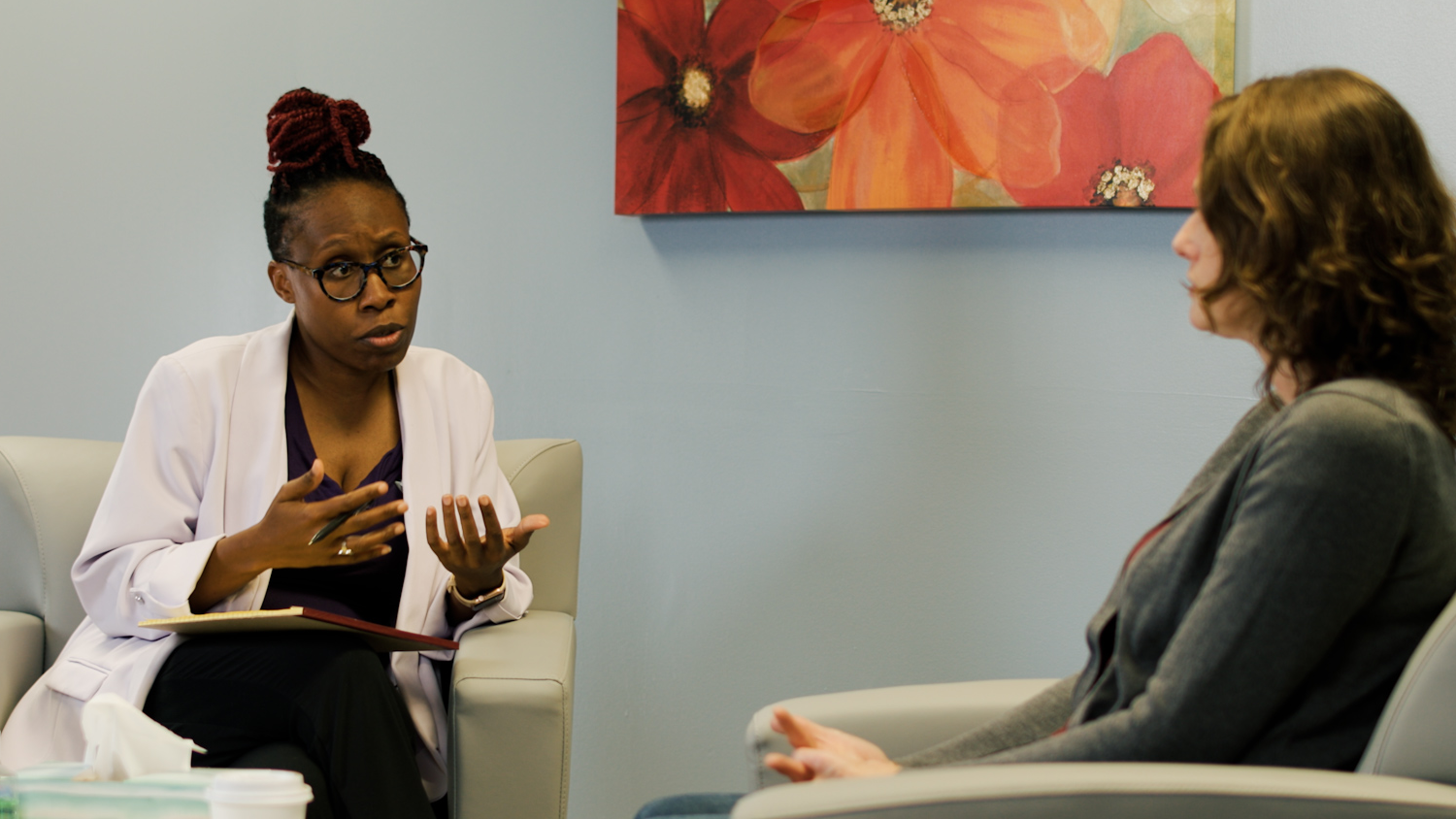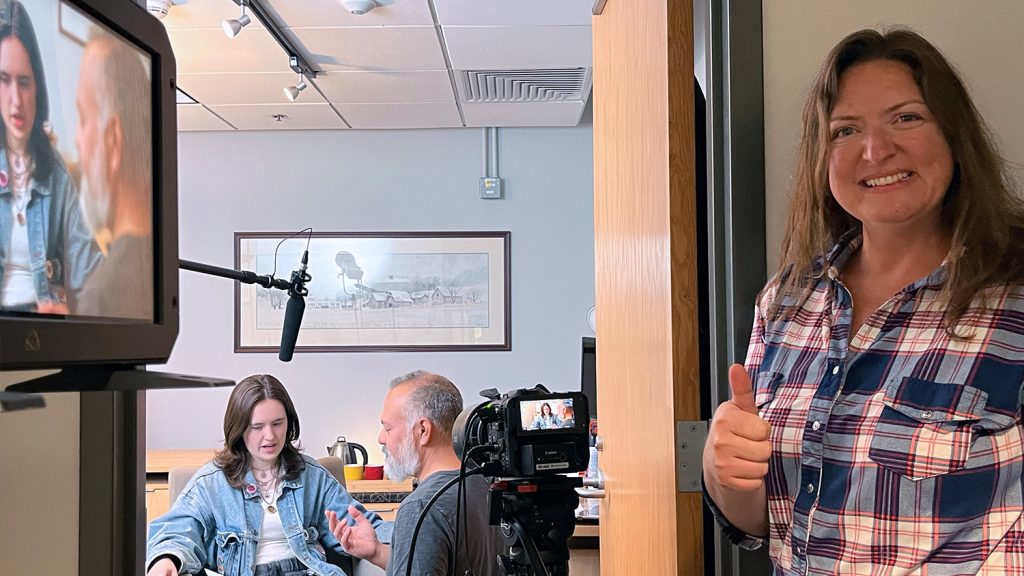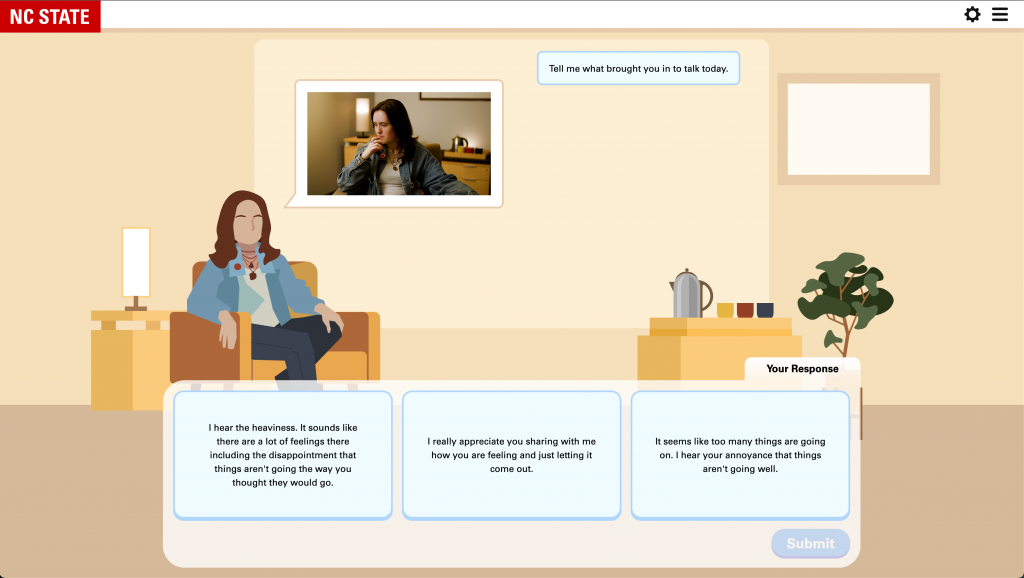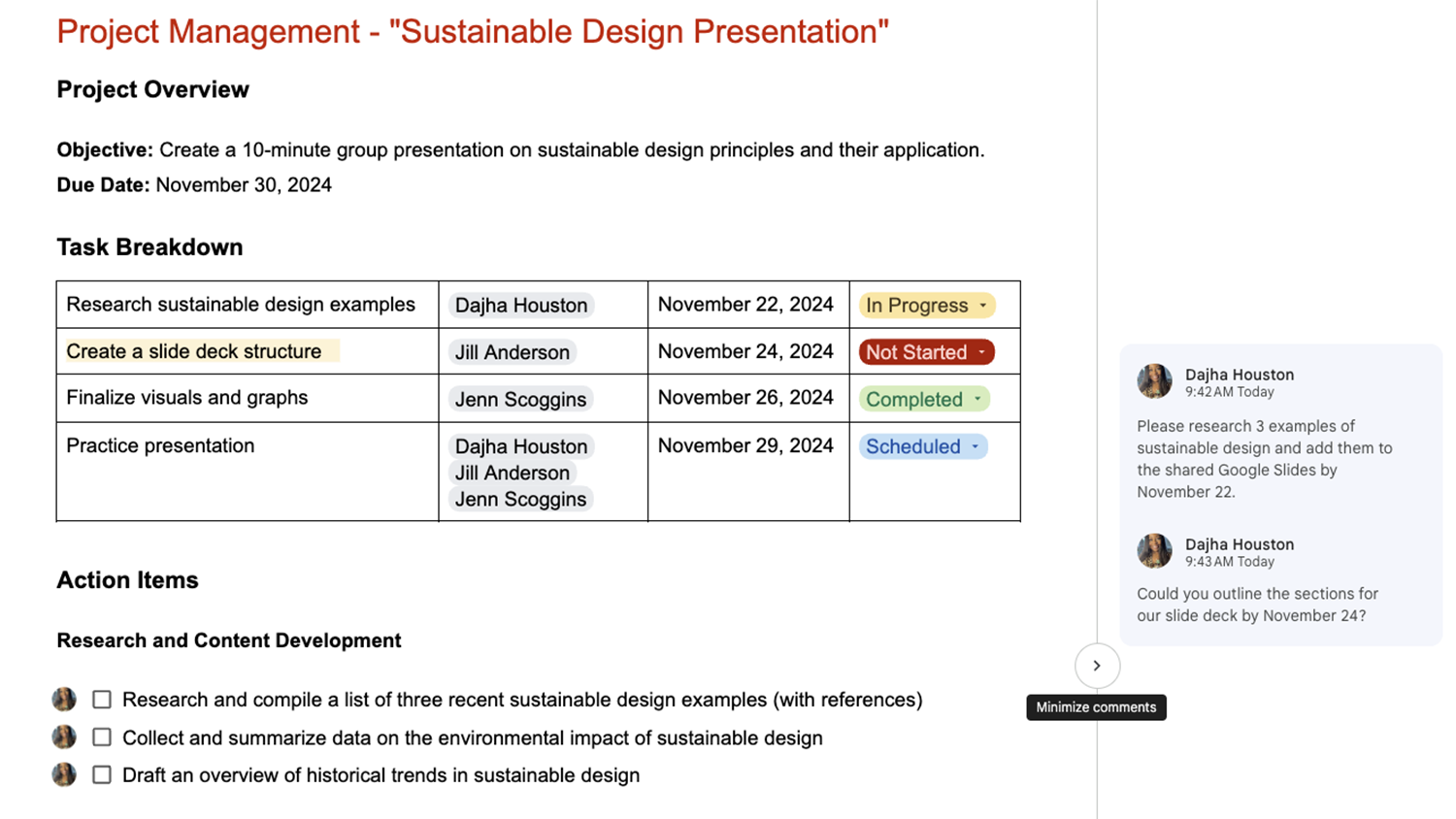Counseling Interns Practice Skills
DELTA Grant Creates Methods to Enhance Opportunities to Build Foundational Expertise

Counseling is both an art and a science. Textbooks and case studies can help students understand the nuts and bolts of the process, but what about the human component? To be as prepared as possible to enter this complex profession, students need hands-on experiences as well as other, more immersive experiences — and this is where DELTA can help!
Students seeking to obtain their master’s in counselor education through College Counseling and Student Development are required to complete ECD 652: Internship in College Counseling. This 600-hour internship provides a professional experience for students with on-site supervision from a qualified professional. However, a study of pre-practicum counselor trainees revealed that students had ongoing questions and concerns related to the application of specific counseling skills beyond the internship.
Faculty recognized that video demonstrations reflecting foundational counseling skills and current practices in the field might help address these identified needs as well as further the development of core competencies. Applying for a DELTA Exploratory Grant, Teaching Professor and Online College Counseling Coordinator of Counselor Education Angela Smith and a team of counseling educators sought the help of DELTA specialists to meet this educational need.
According to Smith, the instructors involved had a creative idea to develop realistic instructional videos for counseling students but were unclear about how to bring the end product to life.
“DELTA was not only willing to help but also partnered with us to make it happen,” Smith said. “As an exploratory grant, this was a different type of project, because it unfolded as we moved along and ‘explored’ the possibilities. Additionally, this project consisted of a multitude of moving parts, including a variety of collaborators, universities, actors, and much more to organize in order to produce the high-quality videos and chatbot feature.”
For the grant, Smith was the primary principal investigator (PI); however, the project involved the collaboration of five instructors from three universities. In addition to Smith from NC State University, additional PIs included Research Fellow Malaika Edwards and Associate Professor Helen Lupton-Smith from North Carolina Central University along with Assistant Professor of Psychology and Counseling Eric Messinger from Hood College and Courtney White, a doctoral candidate in Counseling and Counselor Education at NC State.
Although the original proposal for the grant was intended to create a series of videos, the DELTA development team soon realized that some of the concepts would actually work better through a different medium than just a traditional video.
Creating the Initial Video
To best meet the requirements of the grant, the DELTA team, led by Instructional Media Producer Arthur Earnest, first created a long-form video showing a counseling session in action (working with a script and actors). Other DELTA team members for this grant included Multimedia Specialists Téa Blumer and Andrew Wiedner as well as Senior Instructional Designer Jessica White.
The initial video was designed to view specific counseling concepts and further enhance class discussions regarding how to lead an actual counseling session. The team understood that the behaviors and experiences students need to learn and practice are challenging to share because of privacy concerns. Using a scripted video with actors allowed the team to avoid these issues. Additionally, the script was created using real-life experiences.“The instructors created a script that included situations based on their professional experiences,” Earnest said. “The video shows a counselor leading a session demonstrating advanced skills. Using PlayPosit, the instructor is able to insert questions at points to guide students. As a standalone video, this piece can lead to a larger, open discussion about how a session is run.”

Implementing an Updated Interactive Chatbot
As a complement to the primary video solution, the team also developed an interactive chatbot experience that allows students to take on the role of the counselor and actively practice their skills in a simulated environment.
Previous chatbots simulating a conversational nature seemed a good fit for the need in this situation – a counseling session where the student plays the role of a counselor in practice. Essentially, for this situation, the student needs to select good questions in the chatbot to drive the conversation.
But the team needed to update the underlying chatbot system to allow for expanded features. Previous chatbots made a few assumptions about the content and flow of modeled conversations. For counseling session conversations, the team needed to provide users with more intricate choices and keep track of supervisory feedback in the background to be presented at the end of the session.
“Téa and Andrew worked on an interactive chatbot where the student plays the role of a counselor in a session with a first-year student in the role of the client,” Earnest explained. “Hoping to strengthen and build upon the use of questioning, the counseling student can use the chatbot to choose from a number of responses to lead the session in certain directions. At intentional points, short video inserts show an actor as the client talking directly to the student counselor.”
According to Blumer, these video inserts provide counseling students the ability to respond to clients and practice nonverbal cues in body language – a skill known as “feeling reflections.” This skill is challenging to master, and common mistakes include skipping over the moment, completely mislabelling the feeling, or misunderstanding the intensity of the client’s emotions.
“We assigned points to each response choice to provide students a means to quantify their progress,” Blumer said. “The addition of the supervisory comments in the session transcript offers qualitative explanations that are crucial to students. Reflection and learning are a unique addition to the chatbot refactor, as well as the addition of videos used to augment specific dialogue from the client.”

Because this was an exploratory grant, the team felt they could explore beyond more traditional methods. With the chatbot, they created an experience that showcased certain counseling concepts while also allowing the students to practice using them.
“I think everything we created turned out awesome!” Earnest said. “There were five different instructors on the grant, so it’ll be interesting to hear how the pieces will be used by each one. Being that this was an exploratory grant, it’ll be cool going forward to see how the chatbot experience adds to students’ overall learning and being able to practice their skills.”
Smith agreed with Earnest’s assessment of the exploratory and collaborative nature of the grant.
“This grant was an exciting, year-long project, and we could not have done it without our amazing DELTA colleagues,” Smith said.
“Our team was so creative and patient with us as we developed the ideas further,” Smith added. “They were knowledgeable about the technology we could use to bring this project to fruition. It has been a joyful and rewarding experience to be led by the remarkable DELTA team consisting of Arthur, Jessica, Téa, Andrew and all our DELTA colleagues who worked together with us to create this innovative grant project! We are certain our students will learn and gain valuable knowledge by using the tools created for the courses and other related applications to not only increase the knowledge and practical application of counseling skills but also impact the communities the students serve.”
Want information about how to work together with DELTA to develop instructional technologies for your course? Learn more about the grant cycle and how to apply for a DELTA Grant.


